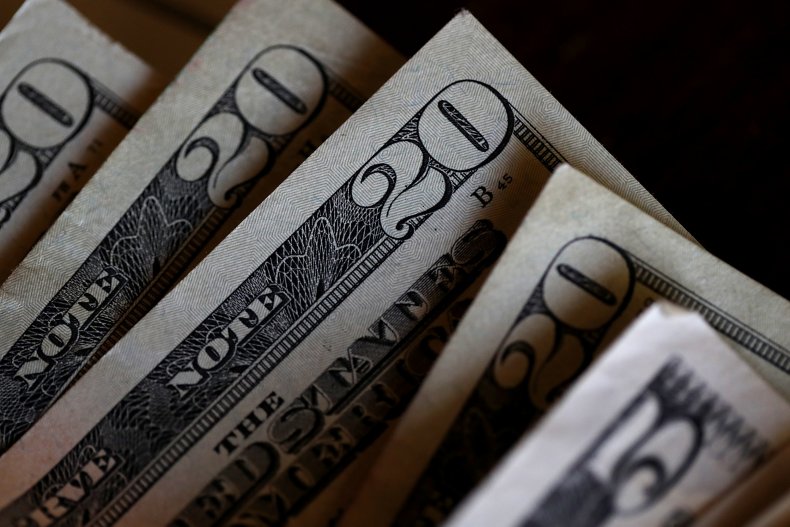A large majority of Americans have seen either no change to their household income or an improvement to it since the beginning of the coronavirus crisis, according to a new survey commissioned by Bankrate.com.
The poll, conducted by YouGov, found that 58 percent of adult Americans had no change to their income since the crisis started and a further 12 percent reported an increase, even as the economy has crashed into what looks like a deep recession.
Moreover, 19 percent now have more emergency savings than they did, 12 percent have less personal debt, and 22 percent had no debt before the crisis and still do not.
And 48 percent of those surveyed who reported a higher income have added to their savings, though 32 percent have, despite being better off, added to their debt.
“Even in the midst of a major economic crisis, the majority of Americans are still working—perhaps less, many about the same, and some even more,” Greg McBride, chief financial analyst at Bankrate.com, told Newsweek.
“Think of the supermarket stock clerk that clocked some rare overtime as people flocked to the stores, loading up on pasta, canned goods, and toilet paper.
“The two biggest private employers are Walmart and Amazon—both of which have seen periods of brisk business since the outbreak.
“Fortunately, nearly half of those that have seen an increase in income have taken the opportunity to put more money in savings.”
YouGov surveyed 2,653 adults in the U.S. from April 29 to May 1. The poll was conducted online.
Around a fifth of the entire U.S. labor force has filed an unemployment claim since the pandemic took hold on American soil. That equates to more than 33 million people.
In the first quarter of 2020, the economy shrank by 4.8 percent, the sharpest fall in GDP since the Great Recession. Most of that decline came in March.
Analysts expect the second quarter to be significantly worse than the first.
The Bankrate.com survey found that 30 percent of American households had seen their incomes decrease since the crisis started.
Of those households, 36 percent had used their emergency savings and 26 percent had added more debt. Just 9 percent had added to their savings.
“The pandemic is deepening the financial hardship for millions of Americans, with nearly one-third of households reporting lower income since the start,” said Bankrate.com’s McBride in a statement.
“The financial legacy of this pandemic will be elevated unemployment, reduced household incomes, more debt, and even less savings.”



















